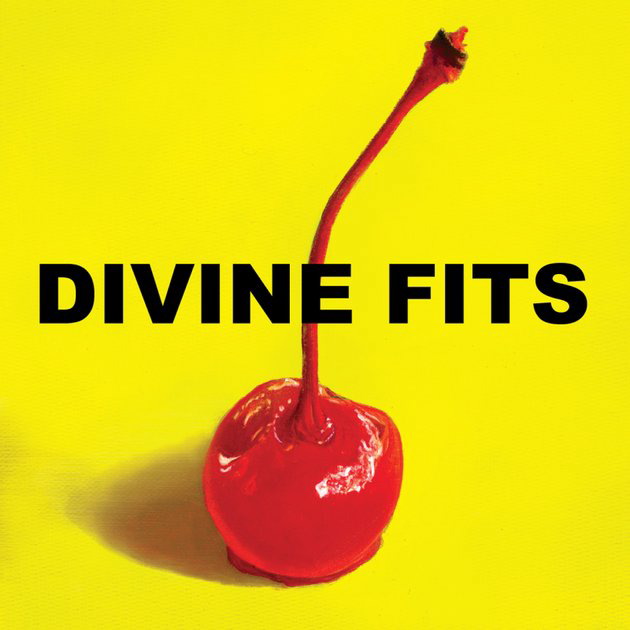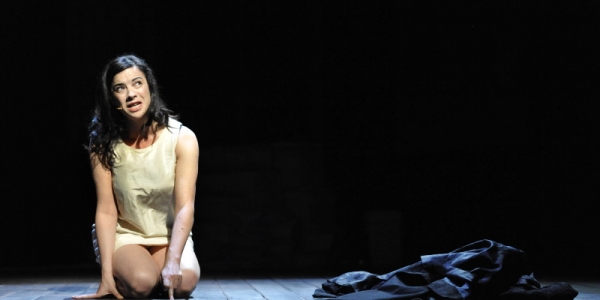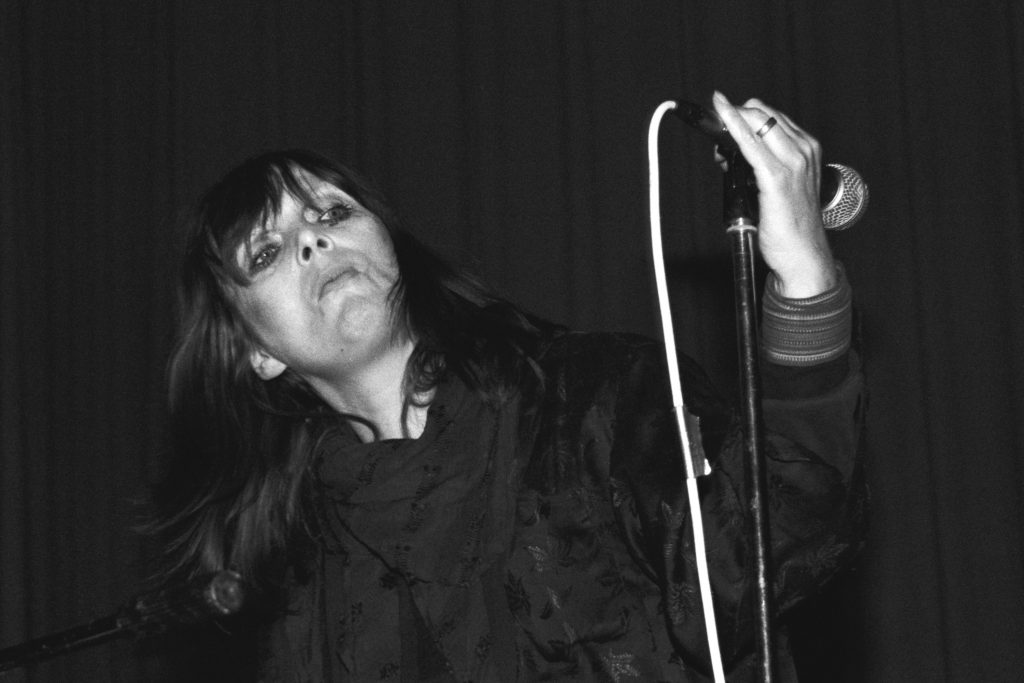“We’re hopefully going to do a single, but we’ll see what happens. We worked out maybe four new songs. The beginning stages of them at least,” he says.
Daniel has been the chief creative force in Spoon since the mid-’90s, but he explains that the Divine Fits song-writing process is vastly different to how he has worked in the past. “A lot of these songs started when we were just at rehearsals or soundchecks. I’ve never been in a band like that, where things just happen spontaneously. I was always the guy that would bring in a song and it was pretty much written. There’s been a lot of times where we spontaneously start playing something, I record it, take it home and change it up a bit. Or Dan will take it home and change it up a bit. One or the other.”
This novel method of song-construction is energising for Daniel and gives him a different point of departure from which to develop a song. “When you write a song and you’re sitting at home trying to write on an acoustic guitar, or a piano or whatever, you know that you can come up with something where the words will fit the music but you don’t know what it’s going to sound like as a band. You don’t know if it’s going to be exciting in that format. But these songs, at least these little bits that we’ve written in these rehearsals, we know those are exciting. Then the challenge is to find some words that will fit on top.”
Although he does relish the flipped manner of formulating songs, he isn’t declaring superiority to either way of operating. He concedes that luck factors in no matter the scenario. “Both can work and both can fail miserably. You just have to try enough times that you get lucky. The more you try the more likely you are to find something that will work.”
In order maximise the frequency of luck co-operating, Daniel suggests that a steady work ethic is necessitated. “I do think that it helps to have a plan that every morning I’m going to wake up and I’m going to try to do something musically. And then go about your day and then maybe come back to it in the evening and work on it some more.”
A large portion of a musician’s life is spent on tour, which enforces a living pattern that consistently subverts the structure one might follow at home. This daily unpredictability can threaten the maintenance of a commitment to productivity. “It is hard to break out of the routine of staying up late, waking up late, doing a soundcheck, doing the show, staying up late. To have this goal – in the midst of all this also coming up with new music – it can be challenging, but that is the ideal situation.”
However, Daniel doesn’t shy away from, nor rebuke, the unusual arrangement of time that touring life installs. “I try to approach every day with curiosity and excitement. Tour life is a totally different experience than life at home. It’s easy to get swept up in that and I like getting swept up in it,” he says.
Another unique experiential feature that comes with regularly traveling is frequently encountering a wide assortment of characters, which provides an insight into the distinctions of human behaviour. “You get to meet all kinds of people you normally wouldn’t. I think people in general are similar everywhere you go, but you get to meet a lot more individuals this way.”
Divine Fits jumped on tour as soon as the album was released but prior to this they hadn’t played live at all. It can take years to thoroughly develop band dynamics and an intuitive chemistry but Daniel emphasises how swiftly they clicked as a live unit. “From the very first show really, it kind of shocked me how great it felt. We had done a lot of rehearsing but it was a totally different feeling when we played these songs live in front of an audience. I know that sounds kind of ‘rock’n’roll cliché’ but it really was the case. Playing in front of people brings a whole new spark to it. The shows are just really good and I end up getting off stage at most of them and just thinking, ‘Wow, that was incredible.’”
The shows continue to increase his belief in the band’s abilities and it’s no surprise to hear that taking the songs out on the road and allowing them expand in front of an audience has given them extra life.
“They’ve changed a little bit. It’s just definitely got more exciting as we’ve gone along. They feel different to me now because we had never played any shows until right before the record came out. I would love to go record the songs again now. Maybe we’ll do that,” he ponders.
To suggest he’d like to re-record the album sounds like typical artist dissatisfaction, but Daniel believes the youth of the band justifies this attitude. “I particularly have it with this one because we had never played any shows. I think that will happen one of these days, we’ll get a radio session and we’ll just say ‘let’s just record all of them.’”
Despite a desire to document the songs’ enhanced quality, A Thing Called Divine Fits is marked by hard-hitting confidence. Daniel explains that even though the songs were well prepared before entering the studio, producer Nick Launay got very involved in shaping the finished product. “We were pretty organised in terms of having the songs ready to go but he provided a lot of suggestions, especially in the early stages of recording. We would play him the song and he would say ‘well what about doing this part longer,’ or say we had a song where singing happened in the first half and there was no singing in the second half, he’d say ‘people want to hear singing in the second half,’ so we tried it. Sometimes we tried it and that worked and sometimes it didn’t work. Nobody’s ego was involved with that, he was pretty cool with it.”
Launay’s hands-on production technique has garnered much renown over the last 30 years, imbuing albums by the likes of Nick Cave & The Bad Seeds, Yeah Yeah Yeahs, and Midnight Oil with emphatic clarity. “I had a lot of records that he had done, going back to the ’80s. I didn’t know his name though,” Daniel admits. “It was Win from Arcade Fire who suggested him to Dan, because Arcade Fire had worked with Nick on the last couple of records. Dan told me about this guy Nick, so on AllMusic I looked up all the records he’d worked on and I was amazed. My first thought was ‘there’s no way he’s going to be free, or have time to work with us, or we won’t be able to afford him,’ but he was very keen to do it.”
With a hint of incredulous admiration Daniel adds, “He made a Public Image record when he was 19!”
Interestingly, Launay also worked with The Birthday Party in the early ’80s, shortly after they changed their name from Boys Next Door. Daniel explains that the cover of the Boys Next Door song Shivers on the album was coincidental. “We were doing that song before we’d ever heard the name Nick Launay. It was pretty weird how that all came together.”
The Divine Fits album has immediate appeal and upon repeated listens subtle accents are revealed, which expand one’s conception of it. Similar textural quirks, sounds that might not be noticed at a glance, are strewn throughout the entire Spoon catalogue. Daniel attests to making a concerted effort to incorporate elements that will continue to stimulate the listener. “I think that when you really get focused on making a record, and it’s something that you’re doing over several months time, you can’t help but get a bit focused on the details. And I think the details become apparent with more and more listens. They’re not the broad strokes, which are really the most important parts of a song, but those little details do add up to something. It helps you continue to appreciate the record for maybe a longer period of time.”
BY AUGUSTUS WELBY







